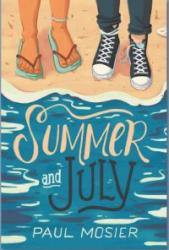
"Summer and July" by Paul Moiser is a warm novel about a girl named Juliet. Juliet's mother is a nurse who has to travel to California for the summer. Juliet is very upset about the move because she did not want to leave her best-friend Fern. Then Juliet meets Summer, a local surfer girl. Summer helps her adjust to the new surrounding, (which is very hard due to her mental illness). She faces her struggles with her new positive companion. When Summer reveals her own pains, Juliet must now be the one to help Summer overcome them.
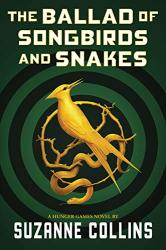
If you have read the Hunger Games series, then you know that President Snow is the main villain and set a iron grip on the Districts of Panem. I you haven't read the trilogy, then might I highly suggest you do.
This book takes place decades before the trilogy starts and we read through Coriolanus Snow's eyes before he becomes the president and monster of Panem. Coriolanus has already set himself up to be in a position of power even as a young adult, and after his city was besieged, and his parents died, the Snow name and fortune left in ruins. Coriolanus Snow has decided that he will never be the weaker side again. The Hunger Games were not a new event for Panem during the time yet they were never popular, now though Coriolanus and his class are each assigned a tribute to make the Games finally noticed. Coriolanus has been assigned the girl of District 12, perhaps the worst choice available, or so he thinks.
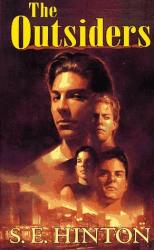
The Outsiders by S. E. Hinton is a timeless classic that explores the lives of teenage boys growing up in a society divided by socioeconomic class. The novel's plot centers around Ponyboy, a member of a gang known as the "greasers," who are constantly at odds with the wealthier "Socs." When Ponyboy's best friend Johnny kills a Soc in self-defense, the gang is forced to go on the run, leading to a series of events that force Ponyboy to confront the harsh realities of his world. Hinton's portrayal of Ponyboy and the other greasers is one of the novel's greatest strengths. Through Ponyboy's eyes, we see the struggles and challenges of growing up in poverty, dealing with absent parents, and trying to find a place in a world that seems to be against you. The characters are all fully developed and unique, each with their own backstory, motivations, and distinct personalities, adding depth and complexity to the story. Hinton's portrayal of the greasers' bond highlights the importance of having a support system, even in the face of adversity. Additionally, the novel explores themes of social inequality, prejudice, and the challenges of coming of age in a world that is often unfair and unjust. I really enjoyed the authenticity of this novel through the abundance of dialogue and interactions between characters. I highly recommend this book as The Outsiders resonates with readers of all ages.
Reviewer Grade: 11.
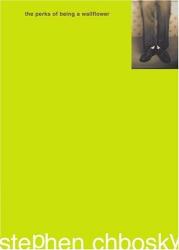
The Perks of Being a Wallflower, written by Stephen Chbosky, is a coming-of-age novel that explores the complexities of adolescence and the struggles of navigating social and emotional challenges. The novel is narrated by the protagonist, Charlie, a high school freshman who is struggling to fit in and find his place in the world. Charlie is a sympathetic protagonist, with his struggles with mental health and social anxiety serving as a powerful critique of the challenges of adolescence. His relationships with his friends Sam and Patrick provide an exploration of the complexities of friendship and the ways in which it can provide a sense of belonging and acceptance. Chbosky combines elements of romance, personal drama, and coming-of-age themes to create a plot that is emotionally resonant and suspenseful. The novel's themes, particularly mental health and the effects of trauma, are poignant and impactful, with Charlie's struggles serving as a critique of societal marginalization and stigmatization. Chbosky's descriptions of Charlie's thoughts and emotions are vivid, immersing readers in the experience of living with mental illness and navigating social and emotional challenges. His use of literary devices, such as symbolism and foreshadowing, adds depth and meaning to the story that kept me engaged throughout. While this book was heartwarming, it was also heartbreaking and took me on a roller coaster ride of emotions. I would recommend this novel to all who love a sappy, coming of age, insightful read that gets you thinking about life.
Reviewer Grade: 11.
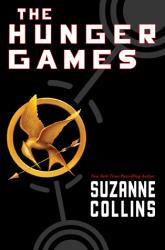
The "Hunger Games" by Suzanne Collins is a suspenseful novel about 16-year-old Katniss in the dystopian land of Panem. In this world, the 13 districts protested against the government. In punishment, they must provide two tributes (one boy and one girl) from each district. When Katniss's sister was chosen as tribute Katniss stepped up to protect her. Now she must fight to the death with the other 23 tributes for a chance to continue with her life.
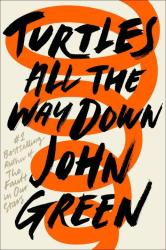
Turtles All the Way Down by John Green is a very insightful novel that explores themes of mental health, friendship, and self-discovery. The story follows the life of 16-year-old Aza Holmes, a young girl who is struggling with obsessive-compulsive disorder and anxiety, as she navigates the challenges of adolescence and tries to solve a mystery involving a missing billionaire. Aza's struggles with mental health serving as a powerful critique of the ways in which society can stigmatize and marginalize those with mental illnesses. Her relationships with her best friend Daisy and her love interest Davis provide an intriguing exploration of the challenges of friendship and the complexities of romantic relationships. Green’s prose perfectly captures the voice of a young girl struggling with mental illness- his descriptions of Aza’s thought processes and compulsions are vivid and immersive, offering a nuanced portrayal of the experience of living with obsessive-compulsive disorder and anxiety. His use of metaphor, such as the titular “turtles all the way down,” adds depth and meaning to the story, inviting readers to reflect on the deeper themes of the novel. I loved the depth and detail that this book had, and I feel like each and every character had so many layers to them that really helped me visualize the story as I read. Turtles All the Way Down is both heartwarming and heartbreaking, and I plan to read it again. I would recommend it to anyone who enjoys coming of age, narrative style books with strong takeaways.
Reviewer Grade: 11.
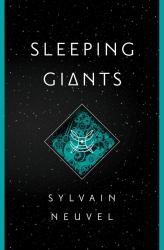
Sylvain Neuvel's "Sleeping Giants" is the first book in a series of three fantastic novels about alien technology and what it means to be human. This book was lent to me by my father, so I knew it had to be amazing. I was not wrong in that assumption. My favorite part about this book is likely the most divisive part: the format. This book is explained in an interview format, between each character and a mysterious interviewer that is developed further in the later installments of this series. At first, I wasn't sure if I would like how jarringly different this format is; sometimes it is noticeable when the author wanted to convey some important information, but the constant interview made the information difficult to show. It wasn't exclusively interviews; occasionally a mission log was used for variety's sake. My least favorite part of the book is actually what wasn't included in the book. It sounds picky, but I think that this book had room for more. The cliffhanger, while masterfully executed, came too soon. Not enough happened before the book ended, so I was left immediately scrambling to acquire the other 2 books in the series. The book, and especially the series as a whole, is absolutely surprising at nearly every step. Characters assumed narratively immortal die, and enemies turn into friends that save the world in the third book. Each character had interesting flaws and contrasting personalities, so each character introduced to us through the mysterious interviewer felt like someone you could meet walking down the street. All in all, this book is definitely one of the best books I have read this year.
Reviewer Grade: 10
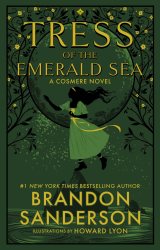
The book "Tress of the Emerald Sea" was a brilliant standalone book set in Brandon Sanderson's "cosmere" (his unique term referring to the general world where most of his books take place). I didn't actually choose to read this book; my uncle lent me this book because I love nearly all of Brandon Sanderson's books. After reading this magnificent book, I am very thankful for his generosity. I enjoyed the development of the protagonist, Tress, over the book the most. Tress stays kind throughout the entire book, but her bravery develops as she grows from a timid cup collector to something I don't want to spoil, but she gains a massive amount of bravery in the pursuit of kindness. I didn't enjoy the ease at which the final boss was dealt with, but the conclusion was relatively tidy and neat. This is the type of book where I constantly need to ask myself, "How did the author think of this"? Spore oceans that kill you but still float ships? Cup collectors creating chaos? Nothing was offensively predictable, and the little twist right at the end reminded my instantly of Studio Ghibli's Spirited Away's little twist at the end regarding the protagonist's parents. I won't say this has been the best book that I've read this year, but that is only because the year is still young and Brandon Sanderson's kickstarter had 3 other books in it.
Reviewer Grade: 10
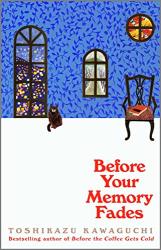
Before Your Memory Fades by Toshikazu Kawaguchi is one of three—four, as of November 2023—books that tells the tale of a cafe with a chair that allows visitors to travel back in time. Contrary to the simplistic concept it carries, there are rules one must follow:
1. One cannot change the present, regardless of their efforts.
2. Occupants must remain in their seat, otherwise they will return to the present.
3. Occupants must finish their coffee before it gets cold. If they do not, they become a ghost and are bound to that chair forever.
4. They can only meet people who have visited the cafe. With that being said, patrons need to travel to the day, hour, minute, and second their targeted person was in the cafe.
5. Patrons can only return to the past once.
6. Despite the first rule, one can give or receive gifts, and one can take photos.
Sorrow and the conflicting bet of regret is a spill all four of the patrons decide against drowning in. Clarity wiped their messes and ordeals clean through the reminiscent transparency of hospitality born from truth, unsaid words, or the driving words to live the rest of their life as a happy person, rather than a person grieving the nauseating reality they're set to survive in.
9th Grade
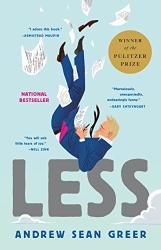
The book Less follows a middle-aged, gay author named Arthur Less, and recounts his loves and losses from a third person point of view. His lover of many years, Freddy, leaves him for a more serious relationship, he goes on a trip around the world partly to avoid Freddy's wedding and his upcoming 50th birthday. The book explores themes such as love, heartbreak, self-doubt, fear of aging, and sexuality. In Less's journey, he discovers that he can't run from his fears by traveling across oceans, he must face them. A Pulitzer prize winner, the language in the book is mature and riddled with literary references spanning throughout history. The author uses many intricate metaphors to describe Less's situation, and then book ends with an incredible twist that will make your jaw drop. I would recommend this book to anyone who likes contemporary literature and wants a meaningful, yet entertaining read.
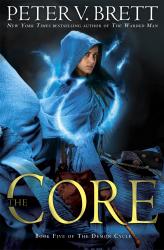
"The Core" by Peter V. Brett is the finale for The Demon Cycle, a great series of books about demons and religion. I originally began to read The Demon Cycle because it was recommended for fans of "The Lies of Locke Lamora", another fantastic book that I will likely review at a later time. My favorite part about The Core was absolutely the lengths that Peter Brett went to in order to ensure an emotional journey. Without spoiling anything, beloved characters have surprising and drastic events that grip you and force you to keep reading. It's hard to pinpoint an unenjoyable part, but I do wish that the ending had more that I could read; I was dissatisfied when there was no more for me to read and that some characters were not developed to the levels I wanted (e.g. Abban and Roger). A few criticisms are as follows; some characters feel intentionally undeveloped just for the sake of a more impactful climax. Arlen, for example, appeared to achieve near godhood across the last 4 books, but he struggles unnecessarily with things that he proved he had mastered earlier in the series. Regardless of all of this, I still believe that The Demon Cycle as a whole has been one of the greatest series I have read this year.
Reviewer Grade: 10
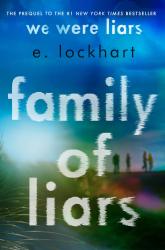
Back to the beautiful family of Sinclairs, still liars. Family of Liars, the prequel to We Were Liars, takes readers back to the private island of the Sinclairs. What really happened in that tragedy two years ago? Or was it even one tragedy at all? This E Lockhart book will leave you captivated once again. The book may even cause you to return to E. Lochart's first Liars book to realign all the pieces of the mystery. Will the dots be connected or will more mystery unravel?
11th grade
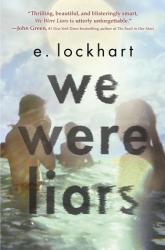
We Were Liars is a young adult mystery by E Lockhart that will grab your attention from the first page. The story describes a beautiful, rich, and perfect (as seen from the outside), family, the Sinclairs. But the Sinclairs have things to hide. When Cadence Sinclair shows up with her cousins on the Sinclair's private island they expect a summer of fun. However, a tragedy of two years ago comes back to haunt and Cadence's migraine pills aren't helping her keep the facts of the incident straight. This story leaves you wondering as new mystery is continuously added. With still more mystery at the end, the book will make you question even more than just the Sinclairs.
11th grade
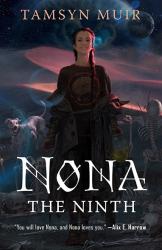
Nona the Ninth is the third book in the Locked Tomb series. It was an unprecedented addition, as the series was originally meant to be a trilogy that would end with Alecto the Ninth. And after reading this book, I couldn't imagine the series any other way. This book takes a step away from our principle protagonists and inter-planetary conflict to zoom in on Nona, a young woman who has technically only been alive for six months. She is a great teacher's aid, a fantastic dog watcher, and a caring friend. As her city crumbles around her and the secrets of her origin begin to come to light, Nona must keep trust in herself and the people she loves if she hopes to make it to her birthday.
I've seen a lot of reviews comparing this book to the first two in the series. In my opinion, there is no comparison to be made between any of them. The first is a thriller mystery in a nightmare castle with newfound friends. The second is a psychological horror story that occasionally becomes a soap opera. The third is slice of life, and the most heartbreaking of all three. I agree fully with the choice to make this a separate book, instead of trying to cram this into a climactic series ending. The series needed time to breathe from the revelations and consequences of the first two books, and to develop many of the wonderful side characters. On this note, the side characters in this book ruined me. They are constantly hilarious. They are perpetually heartbreaking. They have so much love for each other and it tears me apart. They are also fantastically developed, to the point where the thought of losing any of them almost stopped me from finishing the book. A large part of what made them special was seeing them through Nona's eyes, which was a fantastic combination of naively loving and strangely perceptive. Speaking of which, Nona's perspective was a special treat. Throughout the series, the author usually increases tension and intrigue by seriously limiting someone’s perspective. Previously this had been by outside parties hiding information or the unreliability of the narrator, but Nona being a mental six-month-old was a special treat. She attempts to relay everything with accuracy, but with limited experience and vocabulary the audience is forced to experience everything with fresh eyes to try to see it for what it is. Beyond all this, the story shined in all the usual departments for this series. The humor was exceptional, probably the funniest the series has been since the beginning of Gideon the Ninth. I particularly enjoyed the dream sequence narrations, as they were beautiful, insightful, and insanely funny. Sometimes I feel like Muir makes nearly every one of her characters funny so they can rip your heart out later with a little extra oomph. The worldbuilding continues to be a harrowing endeavor in the best way, as you have to take the time to figure it out for yourself with what little glimpses the book gives you. The only complaint I feel like someone could make about this book is that the pacing was pretty slow in the beginning to establish the ensemble cast, but I loved every minute of it so I can’t complain.
In conclusion, this book is another triumph for the Locked Tomb trilogy, and I can’t wait to see what comes next! I’d recommend this book to anyone who loves found family, slice of life stories, lots of explosions, zombie princes, and dogs with too many legs!
Reviewer Grade: 12
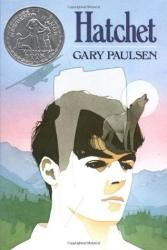
Hatchet, written by Gary Paulsen, is a fictional account of Brian Robeson. Brian, traveling by bush plane to see his father, is quite nostalgic and sad, as his parents had recently divorced. However, this all changes when the pilot has a heart attack and dies. Having no clue how to obtain help and low on gas, Brian, with little previous experience, manages to crash land the plane into a lake. Brian swims to shore and collapses, exhausted. Brian spends several days recovering from the crash before realizing his extreme hunger, which motivates him to be proactive and use all of his resources, including a hatchet, to find food. I would recommend this book to people who like adventure, as well as those who are (and are not) resourceful. Paulsen teaches the reader that it is not what one physically has that determines success, but rather, what one mentally has.
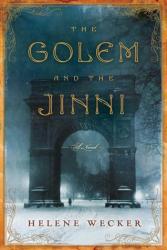
The book, "The Golem and the Jinni" was a fantastic book for several reasons. However, before I get to those reasons, I'd like to explain more about how I chose this book. I was in need of a book for entertainment. Typically, I like to investigate what books are similar to others that I have enjoyed before I visit the library, but this visit was more impromptu. A book was grabbed off the shelf, and I began to read it.
As for the book itself, I enjoyed the historical accuracy the most. Although I was not alive during the described time period, I enjoy the subtle nuance in architectural designs and consistent description between different characters (albeit with a different view for each character; Saleh obviously doesn't describe location unless it reflects faces, until... a spoiler). I enjoyed the inconclusive details the least; without spoiling too much, a lot of the information explained about a Golem's behavior simply never matters, or never comes up. When I first catalogued the details provided to me, I assumed that at least some of it would be relevant to the plot. The vast majority never was. The book was still surprising; the information dump near the climax was amazing for how much it concluded, even if I still complain about the information that was never resolved. The characters are relatable because they aren't relatable. Social situation are difficult for both the Golem and the Jinni, albeit for different reasons. This isn't one of the best books I've read this year, but I'll give it a 4/5 for amazing descriptions of the setting and lovable characters.
Reviewer Grade: 10
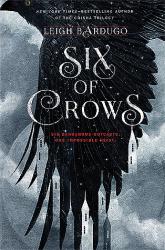
In light of the Netflix series getting its second season, I decided to pick up Six of Crows. In the end, I was pleasantly surprised.
This is a fantasy heist story, which is already a standout. Kaz Brekker and his gang are tasked to steal from the Ice Court, one of the most secure places in the world. If they succeed they’ll get unimaginable amounts of money. Each of his crew members have a different motivation as they head in to break out a prisoner.
The characters are all well developed. Kaz is the standout, with a nice mix of mastermind villain and sympathetic protagonist. Inej and Nina are the most sympathetic, each having somewhat altruistic motivations. Matthias is horrible, but his redemption arc is interesting. Jesper and Wylan are a bit flat at times, but are both fun enough to make me ignore that.
The plot is easy to follow, while still having a reasonable amount of twists and turns. The main problem I have comes up late in the story. I won’t spoil anything, but two characters are set up for a betrayal. When it’s time for them to follow through, they just don’t. I’m sure it gets explored more in the sequel, but it rings a bit hollow for now.
Overall, I’d definitely recommend this book. Especially if you like morally gray protagonists.
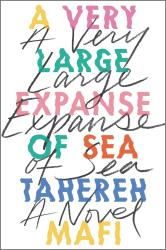
This book suffered from a lot of major flaws, ranging from one-dimensional characters to confusing (and silly at times) plotlines. Mafi not only leans into harmful stereotypes, but she further exaggerates them and emphasizes them as the norm. The relationships between chatacters are largely shallow, their development rushed, and their personalities bland. I remember next to nothing about these unremarkable characters. This book is an infuriatingly simple tale of stereotypical people following a messy and illogical story, and I advise readers to avoid it whenever possible. The greatest strength of this book is its relatively short reading time.
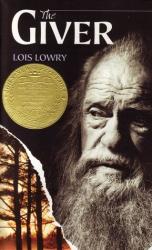
The Giver by Lois Lowry explores themes of individuality, memory, and conformity in a dystopian society. Set in a world where pain and suffering have been eliminated, the story follows Jonas, a young boy who is chosen to become the Receiver of Memory, a role that involves experiencing the past and holding the collective memories of his society. Jonas is a sympathetic and relatable protagonist, with his experiences and struggles serving as a lens through which the reader can explore the world of the novel. The plot of The Giver is very compelling- Lowry’s exploration of memory and its role in shaping identity is particularly well-done, with her depiction of the ways in which the absence of memory can lead to conformity and complacency providing a powerful critique of authoritarian societies. The climax of the novel is both suspenseful and poignant, with Jonas’ actions serving as a powerful statement about the importance of individuality and freedom. Additionally, Lowry’s writing style is both elegant and understated, perfectly capturing the voice of a young boy struggling to make sense of the world around him. To me, The Giver was a fantastic book because of how much it made me think and consider the world around me, and because of how intriguing the contrast between Jonas's dystopian society and the view into the past was. I would highly recommend this book to any and all dystopian lovers.
Reviewer Grade: 11.
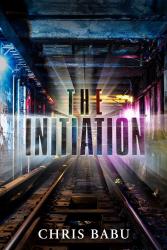
The moment you open the book your going to be immediately thrown into the story. A deadly plague has overtaken the world and the few thousand humans left reside in what used to be Manhattan; now called New America. From Drayden (the main characters) perspective we get to see that New America has a tight hierarchy. All citizens of New America get one chance to elevate above the area they were born, and the stories spread around this "chance" make most pass it up. Drayden though, he has decided to play New Americas deadly game.





 We are experiencing recent outages to the online catalog, PPLD mobile app, and Libby/OverDrive. Click here to learn more.
We are experiencing recent outages to the online catalog, PPLD mobile app, and Libby/OverDrive. Click here to learn more.